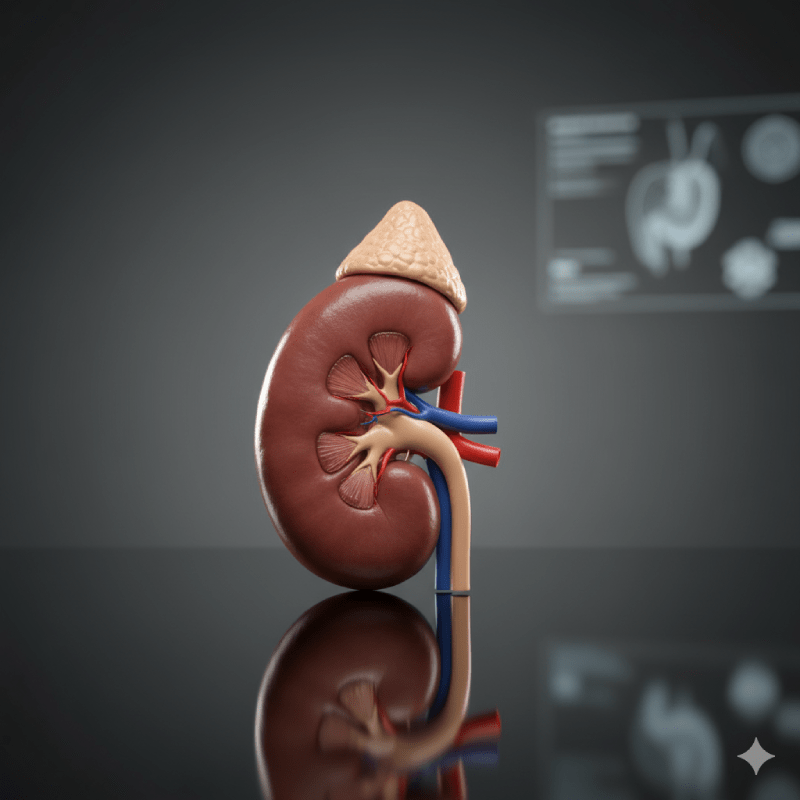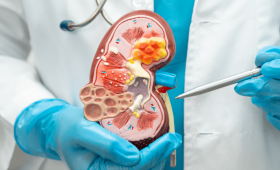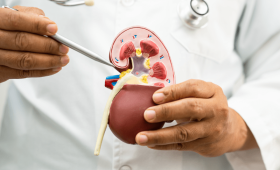What is a Cross Kidney Transplant?
A cross-kidney transplant is a transplant method based on two patient-donor pairs, who are unable to undergo a transplant due to blood group or tissue incompatibility, swapping their donors to give each other a kidney. This system allows patients who would not normally have a chance for a transplant to find a suitable donor within ethical and legal boundaries. The main purpose of the system is to use the existing donor potential most efficiently to enable more patients to receive a transplant. The programs offered by Turkey are a significant alternative for UK patients who want to undergo a transplant abroad.
Who is it Suitable For?
This method is suitable for patients who have a living donor but cannot undergo a direct transplant due to blood group incompatibility (e.g., a B group donor giving a kidney to an A group patient) or a positive tissue cross-match reaction. A cross-transplant takes place by matching the patient and the donor with another incompatible pair. This ensures that both patients receive a compatible kidney. Such programs are generally more effective in centers with a high number of patients awaiting a transplant.
Is it Legal in Turkey and What Are the Requirements?
Yes, cross-kidney transplant is a legal procedure in Turkey and is carried out within the strict rules set by the Ministry of Health. Legally, the donor must be related to the patient up to the fourth degree of consanguinity or affinity. For foreign patients, this condition applies to receiving a kidney from a Turkish citizen donor. Cross-transplant programs are subject to the approval of ethics committees and the Ministry of Health, and the entire process is carried out in a transparent and auditable manner. This provides a reliable basis for patients coming from abroad.
What Documents Are Required for UK Patients?
The documents that UK patients must prepare for a cross-kidney transplant in Turkey include identity and passport information for the patient and the donor, a marriage certificate (if married), documents showing the degree of kinship (birth certificates, population registration records, etc.), and detailed medical reports containing the medical history of both parties. All these documents must be translated from English to Turkish by a sworn translator and certified by a notary. Additionally, the forms to be used in the ethics committee application must be filled out completely.
Why is Ethics Committee Approval Important?
Ethics committee approval is of critical importance in the transplant process to prove that the donor is voluntarily donating their kidney without coercion, pressure, or financial gain. The ethics committee meticulously examines the authenticity of the relationship between the patient and the donor and the medical necessity of the transplant. Detailed interviews are conducted to ensure that both parties are informed and have made their decisions freely. This process guarantees that transplant procedures are carried out in accordance with legal and humanitarian standards and prevents legal problems.
How Does the Cost of a Cross Transplant Differ from the UK?
The cost of a cross-kidney transplant in Turkey is significantly lower compared to prices in private hospitals in the UK. While the cost of a similar procedure in the UK can be tens of thousands of pounds, the cost in Turkey remains at a much more affordable level. The cost advantage comes not only from the surgical procedure but also from the hospital stay, medications, and follow-up processes. This provides both a budget-friendly and high-quality solution for UK patients.
What Is Included in the Cost?
Cross-kidney transplant packages in Turkey are usually comprehensive and include the following services: all pre-operative tests and medical evaluations for both the recipient and the donor, the surgical costs of both operations, hospitalisation (usually 7-10 days for the recipient, 3-5 days for the donor), post-operative medications, in-hospital transfers, and transplant coordination services. Many clinics also offer additional conveniences such as airport transfers and interpreter services. These details ensure that the total cost is determined transparently.
What Are the Payment Options for UK Patients?
Payment for UK patients is usually made in advance or before the surgery. Various options such as bank transfer, credit card, or cash payment at the hospital cashier may be offered. Some clinics provide more flexible payment conditions and can negotiate individually with patients. However, the general trend is for the full cost of the treatment to be covered before the operation begins. International health insurance may cover part or all of these costs, so it is important to contact your insurance company.
How Is Donor and Recipient Compatibility Determined?
Donor and recipient compatibility is determined by blood type and tissue typing (HLA compatibility) tests. One of the most important tests in a cross-transplant is the cross-match test, a positive result of which prevents the transplant. This test determines whether the recipient’s blood contains antibodies against the donor’s tissue. If the test is negative (compatible), the green light is given for the transplant. The cross-transplant program provides solutions by matching these incompatible pairs with a suitable donor.
How Long Does the Cross Transplant Process Take?
The cross-transplant process begins with finding a suitable match, and this duration can vary. Medical evaluation and legal procedures after a match is found usually take a few weeks. Once the patient arrives in Turkey for the surgery, the process is completed within an average of one week. The hospital stay is 7-10 days for the recipient and 3-5 days for the donor. The patient and donor may need to stay in the country for a few more weeks for post-operative follow-up.
What Is the Surgical Process Like?
Both surgical procedures are usually performed simultaneously or at short intervals. The kidney is removed from the donor using the laparoscopic method (keyhole surgery), which results in smaller incisions and a faster recovery process. At the same time, the recipient’s surgery begins, and the new kidney is placed in the groin area and connected to the artery and vein. This dual operation requires high coordination and experience from the transplant team.

How Are the Most Suitable Hospitals for Transplant Found?
There are many hospitals in Turkey that specialise in cross-kidney transplants and have high success rates. When choosing a hospital, it is important to pay attention to international accreditations (such as JCI), the experience of the doctors, the volume of the transplant program, and the success rates. You can examine the hospitals’ websites, read patient reviews, and contact transplant coordinators to get detailed information. For the best results, you should choose a centre with experience and strong references in this field.
Does UK Insurance Cover Transplant Costs?
The UK National Health Service (NHS) generally does not cover treatments abroad. Private health insurance, on the other hand, varies depending on the situation. Some insurance companies may cover part or all of the costs of medical tourism procedures abroad, depending on their policies. Therefore, it is critically important to contact your insurance company to find out if your cross-kidney transplant costs are covered before making an agreement with a hospital in Turkey.
What Are the Post-Transplant Medications and Their Costs?
After the transplant, the recipient needs to use immunosuppressive (immune system-suppressing) drugs for life to prevent the body from rejecting the new kidney. These drugs are vital for the continuation of health after the transplant. The cost of these medications is generally not included in the total cost of the treatment in Turkey. The patient must research in advance how to obtain these medications after returning to their own country and what their costs will be.
What Is the Post-Transplant Recovery Process Like for the Donor?
Thanks to laparoscopic surgery, the donor’s recovery process is usually fast. Donors are generally discharged from the hospital 3-5 days after the surgery. They can return to their normal activities within a few weeks after the surgery. Living with one kidney generally does not pose a problem for leading a healthy life. However, regular doctor check-ups and maintaining a healthy lifestyle are very important for the donor’s long-term health.
What Is the Hospital Stay Duration for the Recipient?
Recipients usually stay in the hospital for 7 to 10 days after the surgery. During this time, the functions of the transplanted kidney are closely monitored, immunosuppressive drugs are adjusted, and the patient is informed about post-transplant care. The length of the hospital stay may vary depending on the patient’s general health status and possible complications, but this period is generally considered sufficient.
What Is Life Like After the Transplant and Does Quality of Life Improve?
A successful kidney transplant eliminates dialysis dependency and significantly improves patients’ quality of life. Patients have more energy, can eat with fewer restrictions, and can return to a normal lifestyle. While regular doctor check-ups and medication use are required after the transplant, patients can continue their social and professional lives more actively.
What Are the Success Rates in Turkey?
Turkey has one of the highest success rates in the world in the field of kidney transplantation. Especially in living donor transplants, the success rate is over 95% in experienced centers. These high rates are attributed to experienced surgical teams, modern medical technology, and comprehensive follow-up programs. These high success rates make Turkey a reliable transplant destination for patients coming from abroad.
How Long Do You Need to Stay Abroad?
In addition to the transplant surgery and hospital stay, it is recommended that the recipient and donor stay in Turkey for some time for post-operative follow-up. This period usually ranges from 2 to 4 weeks. During this process, doctors closely monitor the patients’ recovery process and adjust medication dosages. This is vital for the early diagnosis and treatment of potential complications.
What Are the Most Common Complications?
The most common complications after a transplant include organ rejection, infections, high blood pressure, and side effects from medications such as diabetes. Rarely, surgical complications or loss of kidney function can also occur. The experience of the transplant team, the patient’s regular use of immunosuppressive drugs, and regular check-ups significantly reduce these risks.
How Is the Donor’s Health Affected in the Long Term?
Living with one kidney generally does not cause long-term health problems for the donor. The human body can maintain its normal functions with one kidney. Research conducted worldwide shows that people who donate a kidney have a life expectancy similar to the general population. Donors are advised to have regular doctor check-ups and adopt a healthy lifestyle after the surgery.
Is There a Language Barrier for Transplants Abroad?
Large and international hospitals in Turkey offer special services for foreign patients. These services include staff who speak English or other languages, transplant coordinators, and interpreters. This way, the patient and donor can ask all their questions, express their concerns, and fully understand the treatment plan without any communication problems during the treatment process.
What is the Role of Transplant Coordinators?
Transplant coordinators are the most important guides for patients and donors on their transplant journey. These professionals coordinate all legal and medical processes, arrange patients’ appointments, help collect the necessary documents, and ensure that both parties are fully informed about the process. They are the primary point of contact for patients and answer all their questions.
Are the Recipient and Donor Operated On at the Same Time?
Yes, usually the recipient and donor surgeries begin simultaneously or with a short time difference. This ensures that the kidney taken from the donor is transplanted to the recipient as soon as possible, minimising the cold ischemia time (the time it remains outside the circulation). This is a critical step for the kidney’s functions to start faster and healthier after the transplant.
What Is the Pain Level After the Transplant Surgery?
Due to laparoscopic surgery, post-operative pain is minimal in donors and can usually be controlled with painkillers. In recipients, the surgery may require a larger incision and therefore may cause more pain. However, this pain is also kept under control with regular pain management programs. Patients usually start to feel better within a few days.

Are There Other Alternatives for Transplant?
If a match cannot be found for a cross-transplant between the patient and donor, other alternatives may be considered. For example, some centers offer immunoglobulin treatments (desensitisation) for sensitised patients. This treatment aims to reduce antibodies in the recipient’s immune system. Another option is for the patient to wait for a kidney from a cadaver, but in this case, the waiting time may be prolonged.
How Is Long-Term Follow-up Done for the Recipient?
Long-term follow-up after a transplant is vital for the recipient’s health. Patients are called for check-ups at frequent intervals (weekly or bi-weekly) in the first few months. The frequency of these check-ups is then reduced to annual check-ups. During these check-ups, kidney function tests are performed, and medication levels are adjusted. Patients need to cooperate with their nephrology specialists in their own countries.
Does Transplant Require Psychological Support?
A kidney transplant can be a psychologically challenging process for both the recipient and the donor as well as a physically challenging one. Donors may have concerns about the correctness of their decision, while recipients may have concerns about the process of adapting to a new life. Many transplant centers offer psychological counseling services to their patients. This support helps patients and donors cope better with the process.
How Are Visa and Accommodation Arrangements Made?
UK citizens can enter Turkey visa-free. However, their stay for treatment may exceed 90 days. In this case, it is important to get information about legal regulations for a longer stay. Most hospitals can assist with accommodation arrangements for patients and their companions. Hospitals have agreements with hotels or apartments.
What Is the Best Season for the Surgery?
The best season for transplant surgery does not make a medical difference. However, factors affecting travel and the recovery process can be considered for the comfort of the patients and donors. For example, travel and accommodation costs may be higher in the summer months, while it may be more difficult for the patient to recover in hot weather. The spring or autumn months generally offer more favourable weather conditions.

